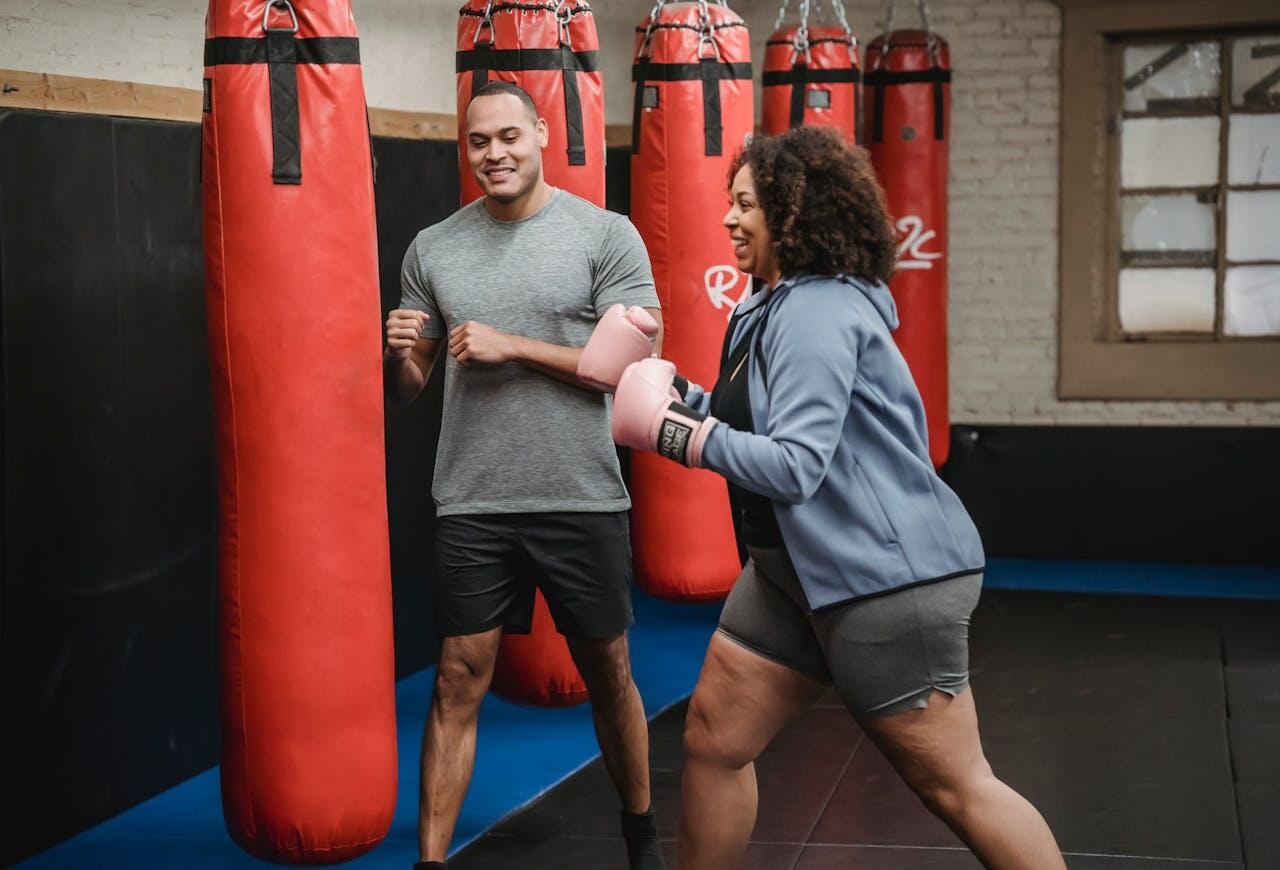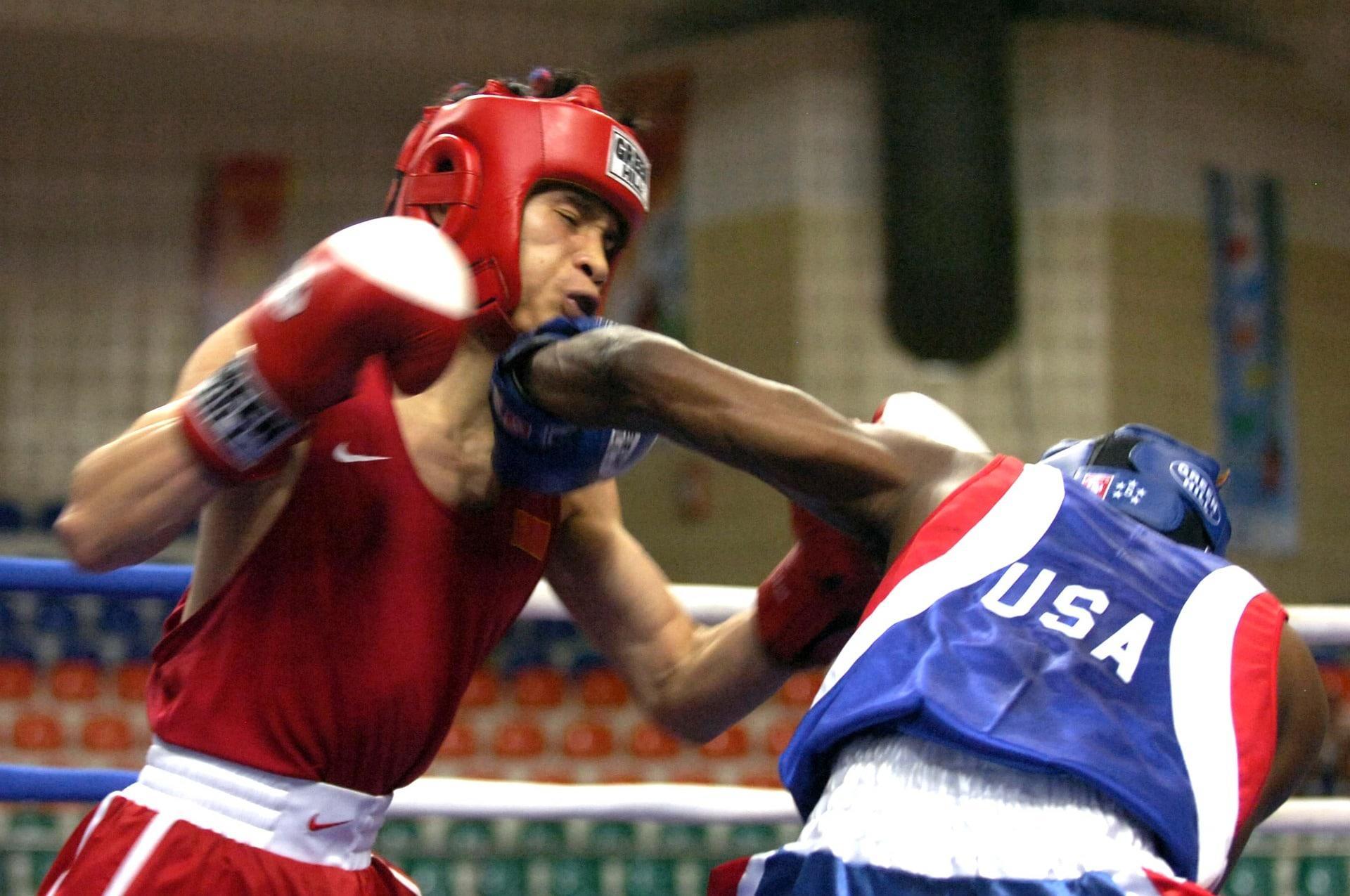The words “ring” and “gloves” will undoubtedly make you think of the world’s most popular combat sports, boxing. An increasing number of people are turning towards boxing each year to let their fists do the talking in the ring and boxing is becoming more popular. Additionally, many people are putting on boxing gloves to get in shape since a boxing workout is great for a fitness class. While not everyone dreams of becoming a professional boxer, there are plenty of people interested in private training, amateur boxing, or just finding a way to get fit and achieving their fitness goals. A lot of boxers are now looking to pass on their skills and passion for this sport as trainers and coaches. One of the best ways to keep the boxing flame alive is to become a coach and teach the future generation of boxers.
“I love challenges, I love intensity, and I also like to challenge my mind. Believe it or not, boxing is not only about physical force. You use a lot of concentration; it's really mental.” - Adriana Lima
Like in many other disciplines, you can teach yourself how to become a boxing trainer, but it’s often better to get a recognized qualification. This is why many opt to get training to legitimize their knowledge of boxing training. This means you’ll have to take lessons, practice, understand the theory, and learn how to teach potential boxers. More and more people are choosing to box and boxing is becoming more popular in the US so there's never been a better time. In short, there are plenty of good reasons to become a boxing coach. Are you ready to start helping people get into the ring? Here’s a quick overview of what boxing coaching training involves.

What Is Training for Boxing Coaches Like?
Like with any other discipline, training allows you to gain knowledge about the subject and use this knowledge professionally. When it comes to combat sports and martial arts, you need to also be able to put this into practice.

To teach people how to do sports, you need to be able to do it yourself. Generally, people will expect you to have boxed yourself. This may put a few potential candidates off as they’ll expect to learn everything on the course. If you want to do one of these coaching courses, you’ll need to want to teach. However, even if you have the drive to teach, you need to have some boxing experience. To become a boxing coach, you’ll need:
- To be in good physical condition.
- To have a solid understanding of the sport of boxing and experience in the sport.
- Be at least age 17.
Boxing coaches have the same legal responsibilities as any other sports coach and require some basic knowledge. You can coach without a coaching qualification in the US. However, you need to ensure that certain legal responsibilities are met in terms of health and safety, protection from abuse, insurance, transportation, and ethics. This is paramount for anyone coaching any sport. Coaches are required to give appropriate advice and guidance and not offer any sort of advice that’s beyond their level of qualification or experience. Once you’re being paid for coaching, all these legal responsibilities will apply. You should consider taking boxing courses, legitimizing your skills as a coach, affiliating with a boxing federation, and being a consummate professional. Furthermore, this will also be a huge plus legally. Whether you want to work in boxing gyms, boxing clubs, leisure centres, or offer private training, some professional boxing training will help and, in many cases, is obligatory for trainers. While there are different coaching courses, they all have a lot in common with one another as they all have the same goals.
Boxing Coaching Courses Content
When you sign up for a boxing coaching course, be aware that there will be both practical and theoretical elements. The theory is as important as practical skills since it will help you gain a better understanding of aspects of boxing and coaching throughout your career. Check for good boxing classes on Superprof.
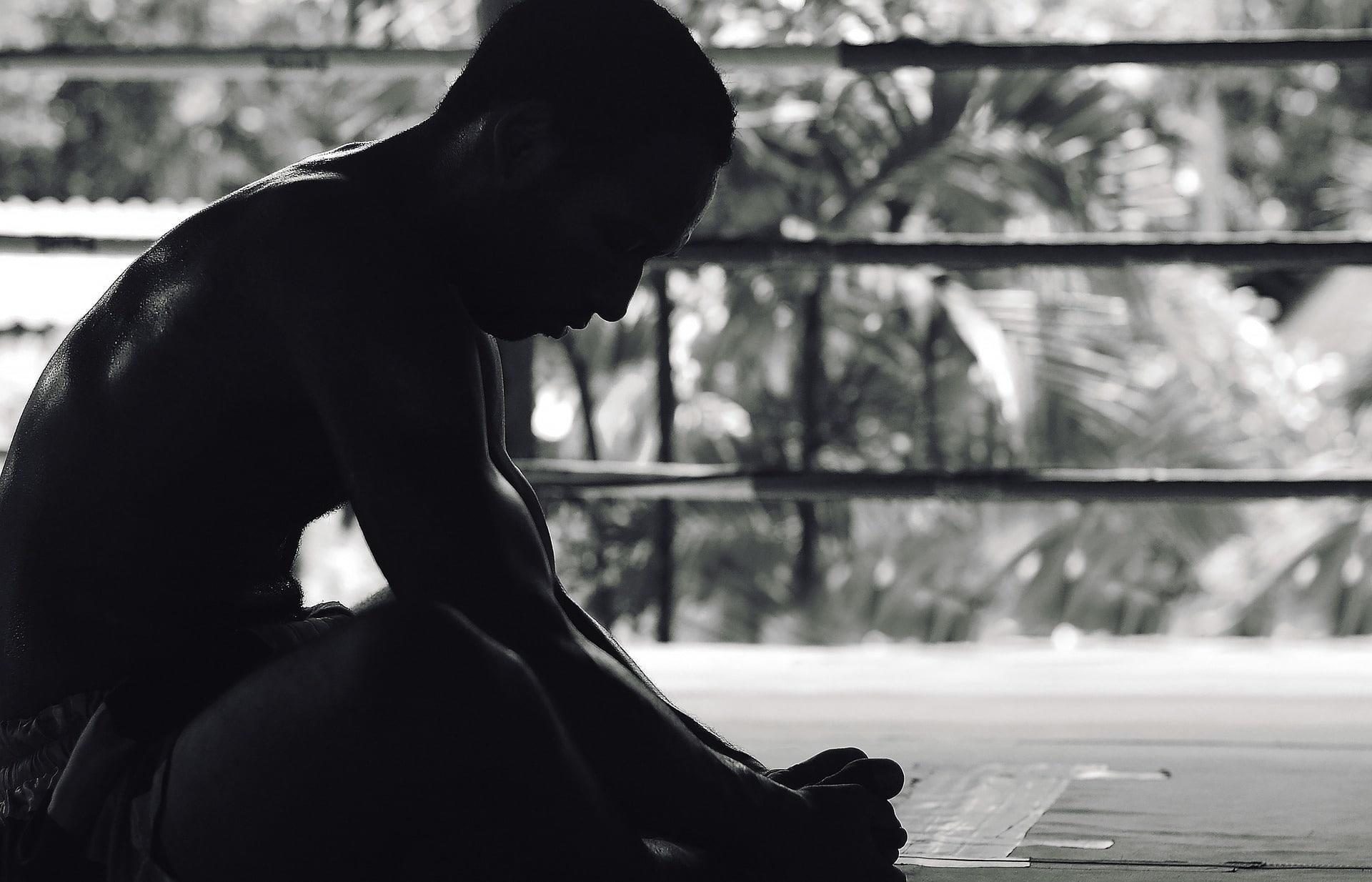
The structure of a ring, boxing tactics, fundamentals, safety, etc. There are so many things you need to know before you can start teaching people how to box. After all, there are even risks when punching a heavy bag or a speed bag and using a jump rope. Admittedly, these aren't as dangerous as what can happen in a boxing ring such as losing by knockout due to a vicious left hook, but you still need to consider the risks of everything you teach. A coach also needs to help manage a boxer’s career. They need to think about training for particular fights in great detail to give their budding boxer the best chance of winning. After all, being a boxing coach isn’t just about watching boxers train. You need to be versatile, familiar with all the different techniques, able to manage a group of students, and even know the makeup of boxing gloves to ensure your students have the right ones. An instructor, an educator, and trainer all rolled into one. Find out more about how much boxing coaches earn.
Level 1 Boxing Coaching Courses
The level 1 coaching qualifications are for those wishing to coach competitive amateur boxing in England Boxing-affiliated clubs. The courses cost 140 USD and last four days. To receive your certificate, you'll need to register on the Vault to an EB affiliated club, have a valid DBS, attend a safeguarding workshop, hold a first aid qualification, and pass the course. As the name suggests, you'll need this qualification before you can move onto the other levels.
Level 2 Boxing Coaching Courses
Once you've had your level 1 coaching qualification for at least 12 months, you can move onto the level 2 qualification. The level 2 qualification will allow you to supervise sparring and subsequently move onto a level 3 qualification. Before you can do this course, you need to have had your level 1 qualification for 12 months and be a registered member of an England Boxing-affiliated club. Much like the level 1 coaching qualification, you also need to have your safeguarding and first aid certificate, a DBS certificate and be recorded on the England Boxing National Database and England Boxing Vault. Find out more about boxing coaching courses.

The Skills Learnt in a Boxing Coaching Coach
Since it’s a course, after all, you’ll be expected to learn things. A trainer, in addition to being a teacher, also has a supporting role and will need to provide support to boxers who are lacking in confidence, too.
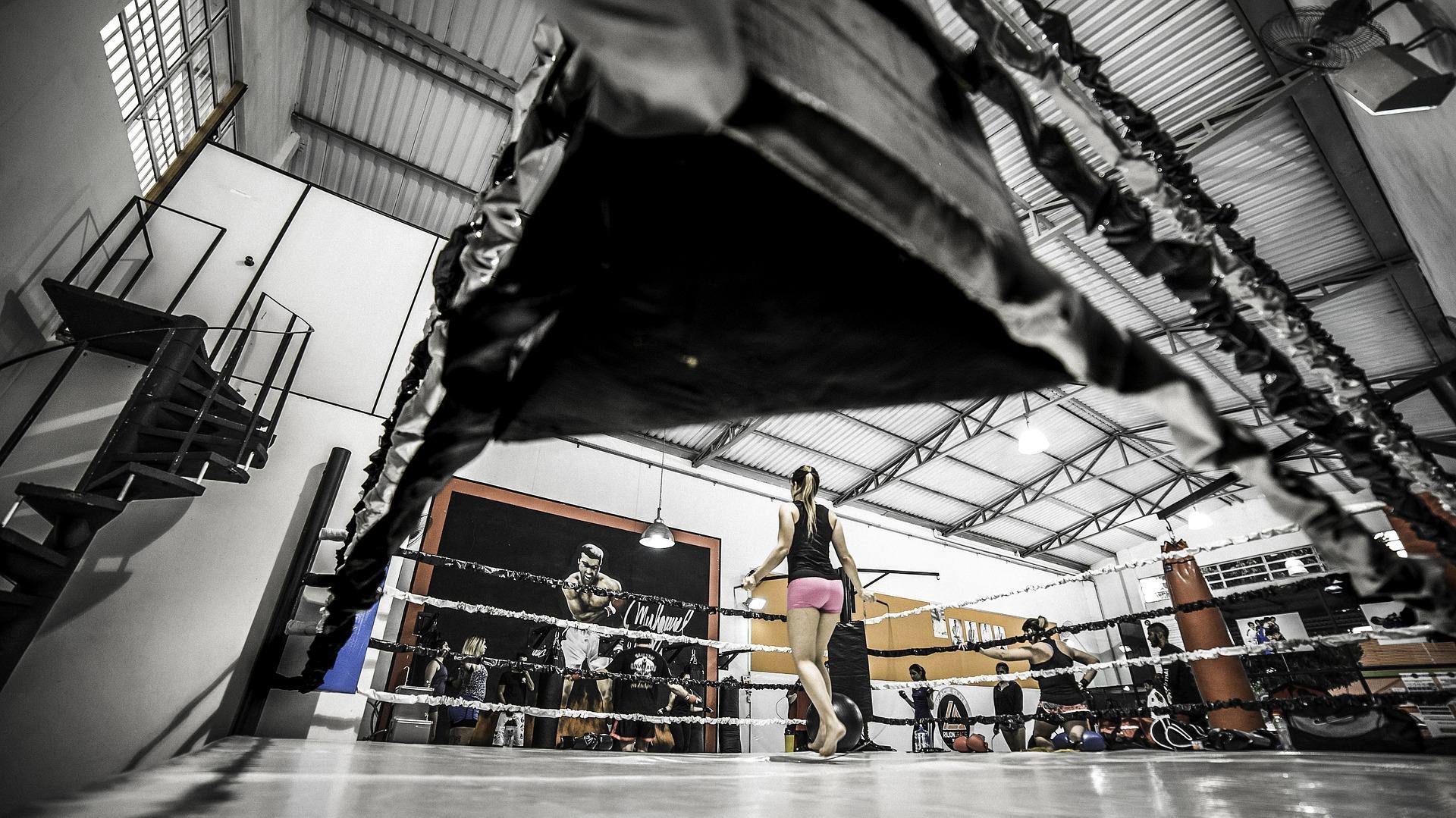
Of all the skills learnt in a boxing coaching course, there’s listening, empathy, and psychology in addition to:
- Creating boxing sessions including cardio, fitness training, technique, etc.
- Adopting their pedagogy to each student and their age, level, or experience.
- Speaking to groups.
- Management skills.
- Understanding the structure of the boxing world.
- Not being scared of setting your sights high for your students.
- Being versatile and able to teach anyone, anywhere, and at any time.
- Adapting their practical program to anyone from amateur boxers to potential champions.
- And many more!
A boxing coach is an anchor for many aspiring boxers throughout their careers. They need to be able to put their heart and soul into their training and pass their passion for the Noble Art onto their students. In reality, while there are several techniques for boxing coaches to learn, transferring knowledge is their main goal. A professional qualification is still important, though. Find out more about where boxing coaches can work.
Where You Can Teach Boxing
Being a boxing coach is all well and good but you’ll need somewhere to teach the future generation of boxers. There are several places where you can teach young boxers and bring them into the world of boxing. Take boxing classes on Superprof.

Teaching in a Boxing Gym or Club
The most logical place to teach people how to box is in a boxing club. There are hundreds of them across the US. In these places, you can find everyone from aspiring to experienced boxers. You can also teach boxing in gyms, sports clubs, and fitness clubs or anywhere with the necessary equipment. However, boxing clubs remain the place to go to learn how to box.
Becoming an Online Boxing Coach
Nowadays, there are new ways to teach and work. You can use online platforms to teach boxing. Through private online boxing tutorials, a boxing coach can teach budding boxers from anywhere at any time. Furthermore, you’re the boss! This is a great option if you can’t find any nearby boxing clubs or you’d like to provide tailored boxing tutorials. There are plenty of sites where you can create a profile and start offering tutorials, including Superprof. Keep in mind that it's far more difficult to supervise your students when you're teaching online so make sure that during your boxing class, you take particular care as your students are working on their cardio, punching bag, jump rope, speed bag technique, or footwork. Check for good boxing classes on Superprof.
The Pros and Cons of Becoming a Boxing Coach
If you’re passionate about boxing, you’ll probably want to coach once you metaphorically hang up your gloves. However, like any line of work, there are pros and cons to boxing coaching. Let’s have a look at the job prospects and wages.

Wages for Boxing Coaches
A boxing coach’s wages depends on several different factors. Who your students are will drastically affect this. If you’re teaching a titleholder, you’ll earn far more than someone teaching amateurs in a boxing club. On average, boxing coaches charge between 45 and 60 USD per hour of training. You’ll probably earn less if you’re working for a boxing club or gym but you’ll also guarantee more hours per week. A private boxing coach can charge more for their sessions but they need to ensure that their schedule has enough boxing classes in it to make it financially viable. Of course, they can always supplement their income by diversifying their offering and providing fitness classes, fitness boxing, self-defense, boxing training, sparring, kickboxing, and full-body workout sessions, for example. Find out more about becoming a boxing coach.
Prospects
There aren’t many career advancement opportunities for boxing coaches as it depends on your students. The better your students, the more famous you’ll become as a coach and the more you can charge. With so few opportunities for advancement, you should make sure that you love boxing before you start. Of course, you can always improve the way you teach. You can look for ways to master your teaching approaches and get the most out of every hour spent with aspiring boxers.
“They got no idea what it is. Boxing is about respect: getting it for yourself, and taking it away from the other guy.” - Eddie, Million Dollar Baby
The Steps to Becoming a Boxing Coach
Boxing coaching courses are aimed at learning everything you need to know about the discipline and showing the professional world of boxing the trainer they can be. Now it’s over to you!
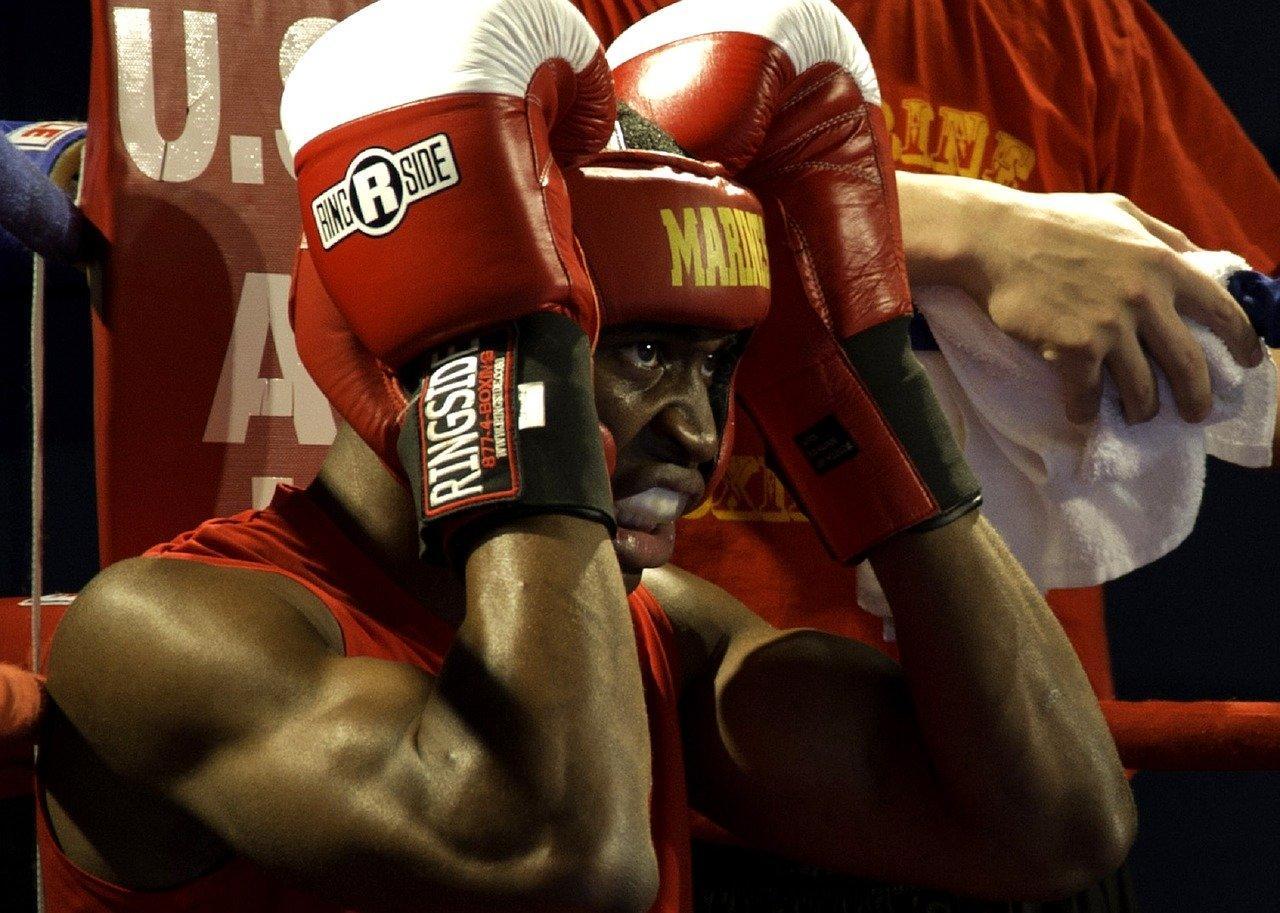
After completing your coaching course, you’ll have some decisions to make: What to do now? Where do I go from here? As a trainer, what should I do? Fortunately, in the world of boxing, there aren’t too many routes to take. By the time you’ve completed your training, you’ll probably have a pretty clear idea of what you have to do. Of course, if you want to diversify your offering, you can always become a coach in the more general sense. Coaches can offer lighter training to people in schools, businesses, gyms, etc. You can work in boxing clubs and with professional boxers but you could also be a coach in general. Whether you’re in a boxing club or a gym, there are still people who are driven to be the best. Take boxing classes on Superprof.
As you’ll have understood, becoming a boxing coach is no walk in the park. Whether you’re starting your career or changing it, you need to know that you can’t make it up as you go along and that coaching involves a big commitment if you want to do it professionally. Whether you’re coaching traditional boxing, Thai boxing, savate, or kickboxing, it can also be a rewarding career as you transmit your knowledge to the next generation of athletes. As a coach, you need to be motivated, experienced, passionate, and have the drive to teach. Hopefully, you now have fewer concerns about becoming a boxing coach and the steps you need to take. Whether you’re teaching juniors, amateurs, or professionals, you need to go for it!
Keep in mind that if you work for yourself as a private boxing coach, you won't necessarily need to focus on boxing techniques. After all, a lot of people are now more interested in the aerobic benefits of boxing fitness than learning how to throw punches or become a professional boxer. Of course, while you can still teach traditional boxing classes, the personal training side of things can be a great way to supplement your income or broaden your offering. You can offer high-intensity boxing workouts for those wanting to get fit or get in shape in the form of circuit training or a boot camp, for example. Similarly, these workout routines don't necessarily need to take place in a gym or boxing club, you can offer full-body workout routines in parks and public spaces, for example. A boxing workout like this won't involve sparring, footwork, or even boxing gloves, but it does draw upon the physical benefits of the training you get in a boxing gym.
You can learn more about boxing from our other articles or even get boxing tutorials from one of the many experienced and talented tutors on Superprof. There are many boxing coaches around the US and all over the world ready to help you but you need to choose the right one and the right type of tutorials. There are three main types, face-to-face tutorials, online tutorials, and group tutorials, and each has its pros and cons. Think carefully about your budget, your goals, and how you like to learn before choosing your private tutor and remember that many of the tutors on Superprof also offer free tuition for the first hour. While this isn't usually a proper session, it's a good opportunity to meet your potential tutor, find out how they like to teach, see if you get along with each other, and agree on the details of your private tutorials.
Summarize with AI:



















